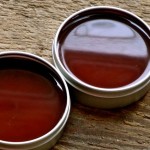A great way to incorporate the flavor and nutrition of some of our favorite fruits into a long-term stockpile is to turn them into a concentrate. While juices don’t have the same level of nutritional potency when compared to whole fruits, they can still provide us with an excellent supplement. Not only that, but having access to healthy fruit drinks can also give us an alternative to the monotony of drinking standard survival staples such as water, coffee or tea.
Lemons are also some of the best fruits around, and they offer us a long-list of health benefits. When used in combination with other nutritious fruits, such as strawberries, cherries, watermelon, coconut, plum or blackberries, we can have access to all kinds of delicious drinks in the midst of a prolonged crisis. Let’s take a look at a couple of recipes that will give you an idea of how easy it is to make and store your own lemon-based concentrates.
Strawberry Lemon Concentrate

All you need are six cups of fresh strawberries that have been pitted and cleaned, four cups of fresh squeezed lemon juice and about five cups of sugar. The first step is to puree the strawberries in a blender or food processor. Next, pour the puree into a large saucepan and add the lemon juice and sugar. Bring to a simmer, but do not boil the mixture. Stir continually until the sugar has been dissolved and all of the ingredients are blended evenly. Continue to stir slowly until the mixture reaches a temperature of 190 degrees.
Next, carefully pour the mixture into preheated, pint-sized canning jars until ¼ inch of headspace remains. Wipe down the rims with a damp cloth, attach the lid assemblies, and process the concentrate for 15 minutes in a water bath canner.
Let the jars cool overnight and inspect the seals once they reach room temperature. Label, date and store the jars in a cool, dry place, and you can expect to get a shelf life of up to a year. When ready to drink, all you need to do is give the jar a good shake before combining one part concentrate to one part water.
Watermelon

You can follow the same steps and proportions above to make a lemon-watermelon concentrate. However, you may want to consider removing the watermelon seeds before processing the fruit. While the blender or food processor may pulverize the seeds into tiny pieces, the finished product will have a grainy texture that isn’t to everyone’s liking. You may also want to consider using less sugar as watermelons are very sweet to begin with. Add an extra cup of watermelon pieces for every cup of sugar that you eliminate.
Plum-Lemon Concentrate

This combination is tasty and worth trying, but it involves the extra step of par-cooking and peeling the plumbs beforehand. You also don’t need as much lemon juice because the plumbs contain high levels of citric acid. Take enough plumbs to make four cups of pulp and halve them and remove the pits.
Place the halves into boiling water and cook for about two minutes before immediately transferring them into ice water. Peel the skin with your fingers once the plums have cooled, and blend them to a pulp. Follow the same guidelines above for processing, but only use two cups of lemon juice instead of four.
Try these for yourself, and feel free to use any other fruit that pairs well with lemons. You can also experiment with different proportions in order to create the right level of concentrate and sweetness that you prefer. No matter what fruits you choose, chances are that you’ll be amazed at how easy it is to add all kinds of delicious and nutritious drink combinations to your stockpile.















